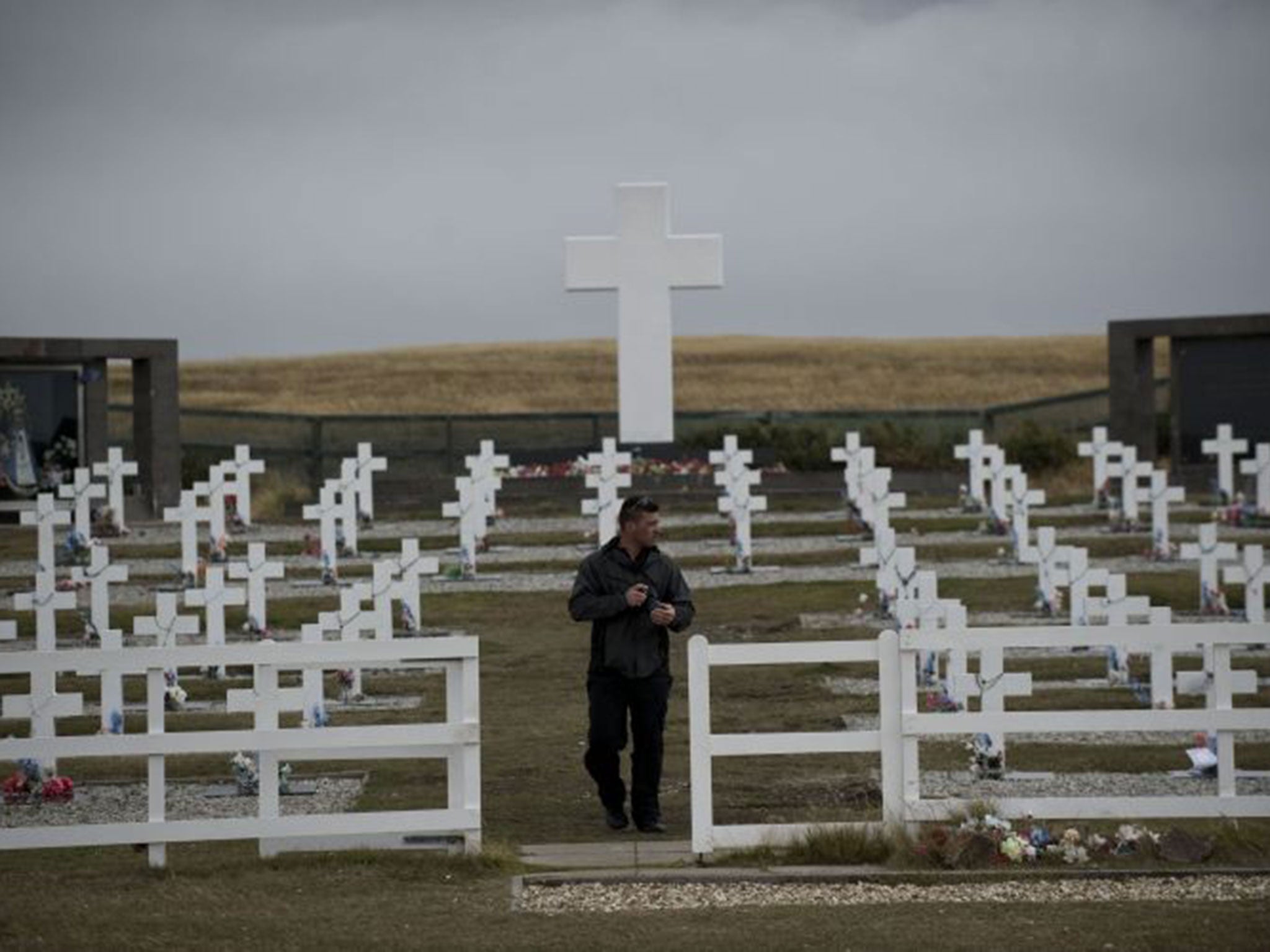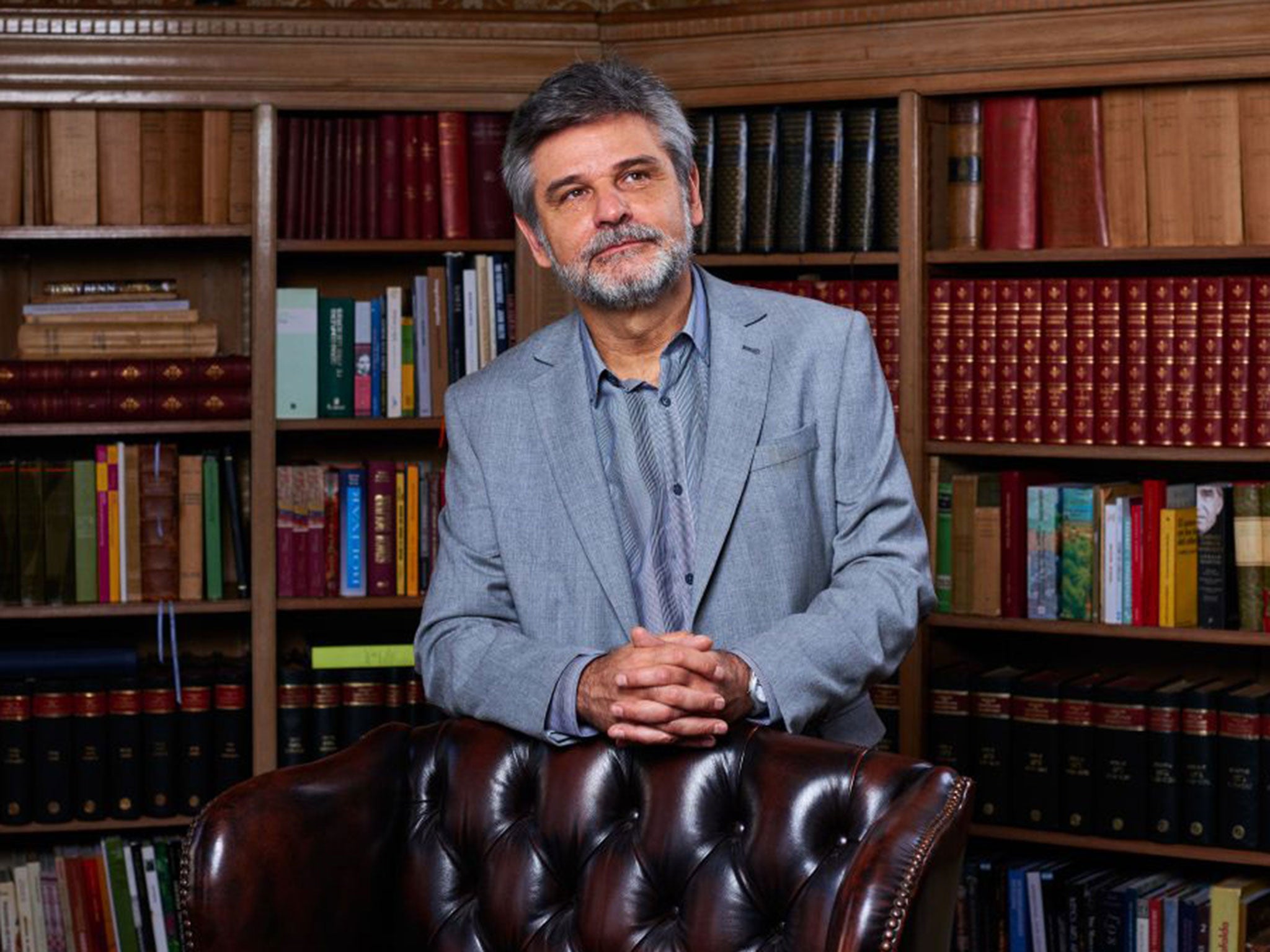Argentina's Falklands minister: ‘There is absolutely no chance of another invasion’
Argentina’s Malvinas Secretary explains the UK does not need to maintain a costly garrison there

Your support helps us to tell the story
From reproductive rights to climate change to Big Tech, The Independent is on the ground when the story is developing. Whether it's investigating the financials of Elon Musk's pro-Trump PAC or producing our latest documentary, 'The A Word', which shines a light on the American women fighting for reproductive rights, we know how important it is to parse out the facts from the messaging.
At such a critical moment in US history, we need reporters on the ground. Your donation allows us to keep sending journalists to speak to both sides of the story.
The Independent is trusted by Americans across the entire political spectrum. And unlike many other quality news outlets, we choose not to lock Americans out of our reporting and analysis with paywalls. We believe quality journalism should be available to everyone, paid for by those who can afford it.
Your support makes all the difference.Argentina’s Secretary for the Malvinas has urged Britain to follow its withdrawal from Helmand by closing its hugely expensive garrison in the Falkland Islands.
Nearly £90m is spent each year maintaining the base, but Daniel Filmus insists that his country has no plans to invade and that the UK’s presence is “unfounded”.
The former academic, a close friend of President Cristina Kirchner, has spent the last week in France pressing his country’s case and he is confident that Britain is becoming increasingly isolated over its refusal to engage in dialogue over the future of the islands.
“There is absolutely no chance of another invasion from the mainland,” says the recently appointed Secretary of State for Malvinas affairs. “We as a nation – the government, the senate, the house of representatives – have repeatedly stated that we do not seek a military solution; all we want is a dialogue to resolve our differences.
“It is extraordinary that with so many conflicts going on around the world, the British government does not want to hold talks. Instead they have the garrison there and have created one of the most militarised zones in that part of the world.”
Two years ago tensions resurfaced after Prince William was deployed to the islands and the UK sent a new warship, HMS Dauntless, provoking anger in Argentina.

The Argentine military has been denuded of funds since the fall of the junta, though Buenos Aires has just announced plans to buy 24 Swedish Saab-Gripen fighters in conjunction with Brazil. The warplanes, however, will not be ready for at least another five years, and Mr Filmus is adamant: “The UK’s position that the force in the Malvinas is there to defend against aggression is unfounded.”
Mr Filmus is on a visit to London for the launch of a book on the islands whose future is the subject of impassioned dispute 32 years after a war which cost more than 900 Argentine and British lives.
“The Chinese and the Russian presidents have publicly given their support and we have the African states and the Arab bloc also saying there should be talks and, of course, we have the support of our South American neighbours,” he said. “The UN passed Resolution 2065 almost 50 years ago recognising the sovereignty dispute between Britain and Argentina over the Malvinas and recognising that it was framed in a colonial situation; all we are doing is asking the government over here to talk and settle this.”
Alicia Castro, Argentina’s combative ambassador to the UK, pointed out that negotiations over the Falklands had taken place in the past. “That is the strange thing: British governments have been prepared to talk to brutal military dictatorships in our country, but they refuse to speak to one which is democratically elected. But I think ordinary people here have become more sympathetic; I am not saying they necessarily agree that the Malvinas should belong to Argentina, but on talks rather than wasting their taxes on maintaining such an expensive military presence, an expensive relic of the past.”
The Falkland Islands have internal self-government with the UK taking responsibility for defence and foreign affairs. In a referendum held in March last year, 1,517 voted to remain a British Overseas Territory, with just three against. Mr Filmus insisted that he “fully respect their right to be British, but this is about sovereignty, about territory rather than nationality. The fact that you have a population who are British is not a problem: we have one of the largest population of Welsh descent outside Wales; one of the largest of Scottish descent outside Scotland and similarly with Irish descent.”
The Welsh Assembly, Mr Filmus and Ms Castro were keen to point out, sends documents to Patagonia, where there is a Welsh community, to be translated from English. “This shows that they have kept their cultural identity. In fact we have so much cultural history in common with Britain – the sports which came to us from here: football, rugby, polo. There is a lot of common ground. But what is not right is to have a colonial situation continuing in this age.”
Just in case? Britain’s Falklands garrison
The 1,200-strong British Forces Garrison, which makes up British Forces South Atlantic Islands, is based at Mount Pleasant Complex, some 35 miles (56km) from the capital, Stanley.
Among assets supporting the garrison are infantry and specialist troops, Rapier surface-to-air missiles, Royal Navy ships, RAF Typhoon jets and support aircraft, and a flight of Westland Sea King helicopters for support and search and rescue.
There are also four Eurofighter Typhoons, and a single Voyager tanker/transport and one Hercules, with two Sea King helicopters maintained by Sea King Integrated Operational Support. There are also two Sikorsky S-61 civilian helicopters run by British International Helicopters Limited.
Join our commenting forum
Join thought-provoking conversations, follow other Independent readers and see their replies
Comments